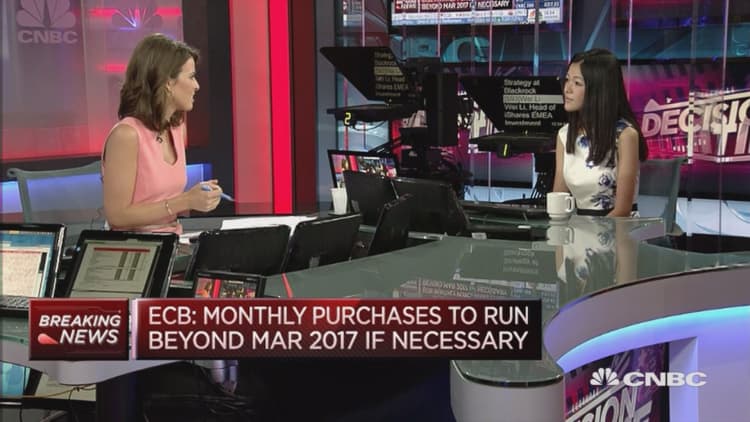
Bank of Japan Governor Haruhiko Kuroda ruled out the idea of using "helicopter money" - or directly underwriting the budget deficit - to combat deflation, as policymakers in Tokyo gear up to expand existing stimulus programs.
Japanese markets have risen this month on speculation that authorities, battling to revive an economy dogged by decades of anaemic inflation, will resort to using helicopter money, possibly issuing perpetual bonds to underwrite public debt.
But in a BBC interview broadcast on Thursday, Kuroda said the central bank already had mechanisms in place to ease policy further if needed, and that Japan should not forfeit a clear separation between fiscal and monetary institutions.
"I don't think at this stage we should abandon this institutional setting. No need and no possibility for helicopter money," Kuroda told the radio documentary.
The shot up after Kuroda's comments, hitting a high of 116.44 , up 1 percent on the day.
The BBC said Thursday that the interview with Kuroda was conducted in mid-June.
A BOJ spokesman said Kuroda was reiterating his usual stance. The date of the interview was not clear.
Last week a senior advisor to Prime Minister Shinzo Abe told Reuters that Japan should not resort to helicopter money.
A majority of economists polled by Reuters this week expected the BOJ to ease policy later this month, forecasting a combination of measures in another attempt to kick-start inflation.
Kuroda, who was interviewed in his office in Tokyo, said the BOJ had three existing policy options: quantitative and qualitative easing, and negative interest rates.
"If necessary, we can change the quantity, as well as further change and expand the quality (of assets purchased), and also we can further deepen (into) negative territory of interest imposed on part of the current account deposits (from) commercial banks," he said.
"We have very powerful policy framework, and I don't think there's any significant limitation of further easing of monetary conditions in Japan, if necessary."
Speaking on the same BBC program, Bank of England Chief Economist Andrew Haldane said low interest rates and bond-buying schemes since the financial crisis might have led to some markets overheating sometimes, but there was no evidence this had become widespread.
Haldane was interviewed on June 28.

